
OR
Opinion
Resuscitation of the Bygone Loksewa Legacy
Published On: January 24, 2022 06:30 AM NPT By: Pradip Kumar Kafle
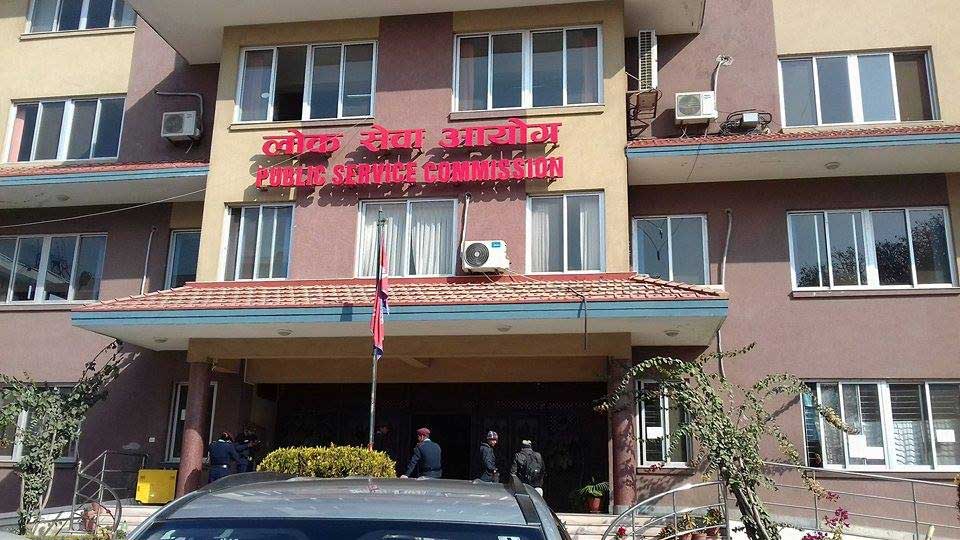
Every person reading this piece knows why and where the majority of Nepali talents land after finishing school or completing undergraduation. They serve Amercians or Europeans or the rest of the globe, but not Nepal. It's because Nepali institutions don't care about the talents, unless you are ‘our man (hamro manche)’ rather than ‘the man (ramro manche)’.
Academic medals hang on top of the wall. Sadhguru's motivational quotes fill the corners. A well-manuscripted chart highlighting the articles of the constitution sits on the desk below a political map attached with the crimson-colored Nepali flag. Piles of certificates rest in the bag. Newspaper cuttings spread all over the floor. Books on development galore the space and crazy little colorful notes float over them. You may now wonder and ponder, who the hellish nerd’s room this is?
The unemployed owner of this peculiar setup is a rare breed of MBA and an aspirant preparing for the Public Service Commision (PSC) exams who is now coerced by a couple of lethargic institutions to sincerely review the aim of serving the nation as an economist. It's not that well-wishers and professors did not warn the author of encountering a big trade off between ethics and career, when the latter got determined to serve the Nepali bureaucracy. But, with all his zeal and zest, the author rejected their hypothesis, and dreamed of being a gazetted officer at the very start of his professional life. He soon worked for exams ridiculing the fellow gentlemen’s advice, with contemplations for 'Sarkari Sindur (public service)', but soon realized how statistically significant the professor’s propositions were.
Today, a majority of the PSC aspirants face this sort of cognitive dilemma due to the laggard approach of the PSC. On this account, revitalizing the one and only recruiter of the Government of Nepal - the Public Service Commission aka Loksewa - seems to be an urgent need.
Curtailing the Time Lags
Today, governmentalization has become synonymous with the process of making someone lackadaisical. The governmentalization (Sarkarikaran) of the energetic youths, even those with summa cum laude in universities, starts from the very day of advertisement by the Public Service Commision. The recruitment notice comes up with huge time lags, often taking months of gaps in between the series of written exams and interviews. The opportunity cost of the time lag is huge. The elongated time gaps may help those, who rely on rotting for just vomiting on the exam papers but not the PSC, aiming to recruit real talents from the corners of the nation. The time lag in a normal scenario is in months, but once a legal or technical glitch emerges, time lags scale up to years. In FY 2078-79, Nepal Electricity Authority’s written results were out. The first advertisements for these jobs were made in FY 2075-76. Who cares about the three years in between? The current recruitment practice just lets the aspirants get a bit older and lazy before hiring them. The seed of the ubiquitous 'ekxin paxi aunus (visit us later)' that citizens encounter in most of the government offices is sown from this very instance of recruitment. So, stringent adherence to time schedules is a factor that would bring back the legacy of this institution.
Hunting the Homegrown Talents
Every person reading this piece knows why and where the majority of Nepali talents land after finishing school or completing undergraduation. They serve Amercians or Europeans or the rest of the globe, but not Nepal. It's because Nepali institutions don't care about the talents, unless you are ‘our man (hamro manche)’ rather than ‘the man (ramro manche)’. In a similar fashion, PSC also damns adroit students, and puts everyone in the same basket. Those who are gold medalists or extraordinary achievers of university, need not be assessed more. They already proved themselves of their ability. And, they don’t want to spend the most productive years of their career waiting months or years for PSC results. That’s annoying, ridiculous and frustrating. Hiring those assets directly as interns and later given permanency upon satisfied performance may somehow halt the ongoing exodus of organic talents.
People-oriented, not process-oriented
The lockdown effect and bureaucratic vacillation in the activities of the Public Service commission led to the recent protests of frustrated aspirants, demanding the resignation of the respected authorities in front of the PSC central office a few weeks ago. The series of events that evoked this situation is a horrendous blunder that a recruiter ever does in this digital world. Those who are willing to serve the nation at a meager salary range of 20-40 thousand have to come on the street and demand for a quicker process of recruitment. This connotes the failure, the management failure. Nothing less or more. They rarely follow the published time schedule, as if it’s illegal to do so, when that’s the only moral one. In this front, PSC must design ‘fast-track legal mechanisms’ to resolve the issues connected with them as soon as possible. The current dilly-dallying from the Supreme Court could have been avoided, if the PSC writs were prioritized and looked upon, as it hampered thousands of aspirants' lives.
Neoteric exam modules
The pattern and questions administered in PSC examinations follow the same trend as were decades ago. One must fill up the papers in a limited time to express his or her intellect. No logic in this earth resonates with the rational beyond this approach of candidate selection. And, questions demand more memory rather than analysis from candidates. The physical examinations are mandatory, be it lockdown or anything else. When questioned over this anachronistic practice, the responsible ones are often found to reiterate that, even Indian UPSC follows the same process of examination. Aspirants strongly dissent on this poor benchmarking because, there is no compulsion to follow Indian polity in each and every thing, including blatant copy of questions in some of the exams. We can be better than them and let them follow our lead.
Thus, analytical questions must be presented to the students. Certain proportion of talents could be hunted by internships and later recruitments could be done on the basis of performance, if the government wishes to retain a quality workforce. Amidst this Corona havoc, PSC needs to search for alternatives to physical examinations. If the world's top institutions rely upon the GMAT, IELTS, TOEFL and such to gauge the knowledge of aspirants, the Government of Nepal also can work on the same model of examinations.
To conclude, the commision is often applauded for its non-interference and transparency. It's true and cheers for that. But, that's not enough. If PSC turns too obsolete to handle the evolving young sentiments and insists on adapting to the same old recruitment methods even in this dynamic twenty-first century, the author foresees more protests in line against the luddites. As a Sanskrit shloka from the Bhagvada Geeta beautifully quotes ‘Pariwartanmeva Sthirmasti’ which translates into ‘The only Constant is Change’, PSC must get out of the comfort of the status quo and address this generational demand of change.
(The author is an MBA from Kathmandu University School of Management.)
You May Like This
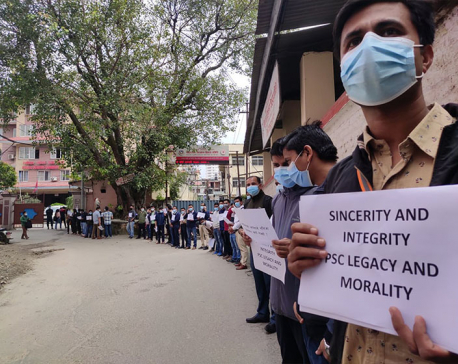
PSC examinees demand immediate publication of final result of section officers’ exam
KATHMANDU, Sept 20: Examinees of the Public Service Commission (PSC) examinations have taken to the streets demanding immediate publications of... Read More...
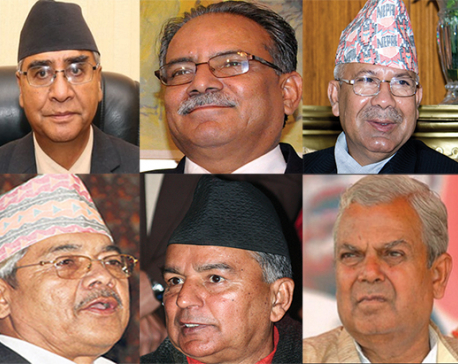
No country for new leaders
Obama became the US president 13 years after Deuba became Nepal’s prime minister in 1995. When Jhalanath Khanal became UML’s... Read More...

Why privacy bill should be amended
The state has no right to control people’s freedom and liberties while introducing right to privacy laws. No law should... Read More...


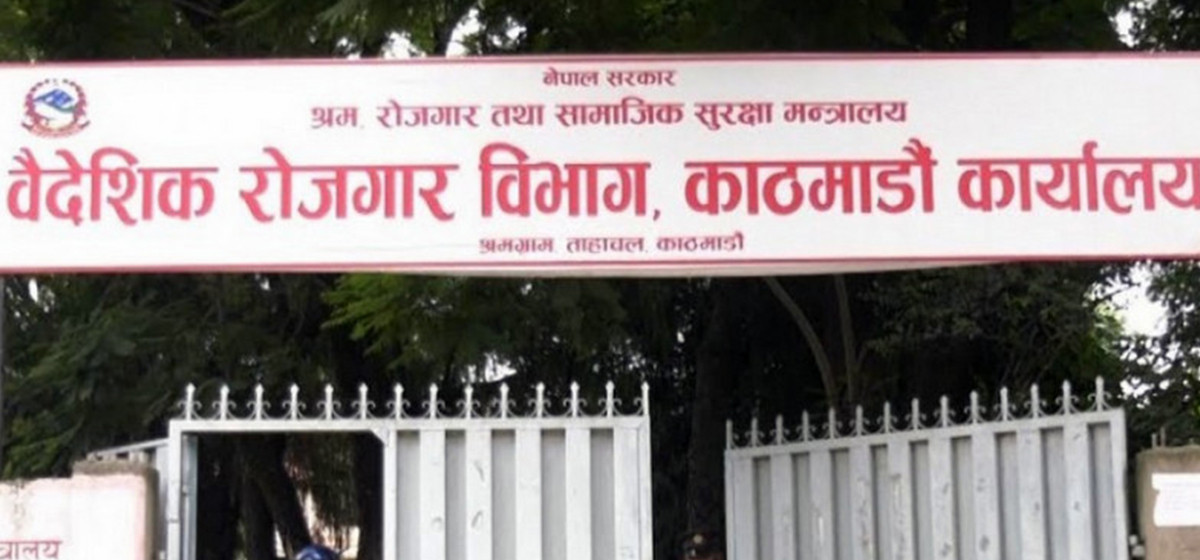
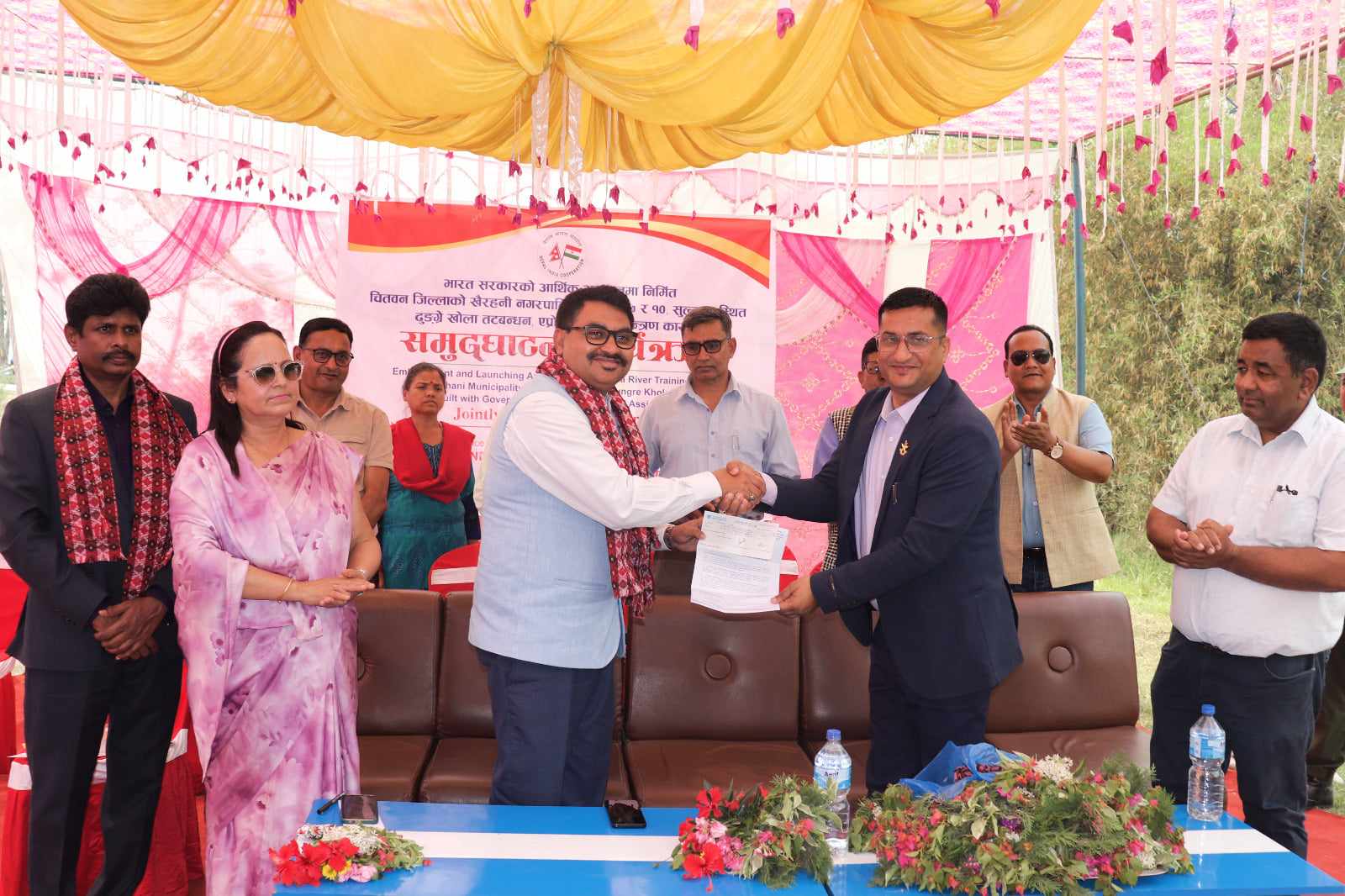


Just In
- DoFE requests relevant parties to provide essential facilities to foreign workers traveling abroad
- Foundation stone laid for building a school in Darchula with Indian financial assistance
- 151 projects to be showcased for FDI in Third Investment Summit
- Police disclose identity of seven individuals arrested with almost 2 kg gold and more than Rs 10 million in cash
- NIMSDAI Foundation collaborates with local govt for Lobuche Porter’s Accommodation Project
- Home Ministry directs recalling security personnel deployed for personal security against existing laws
- Fake Bhutanese refugee case: SC orders continued pre-trial detention for seven individuals including former DPM Rayamajhi
- ADB Vice-President Yang pays courtesy call on PM Dahal












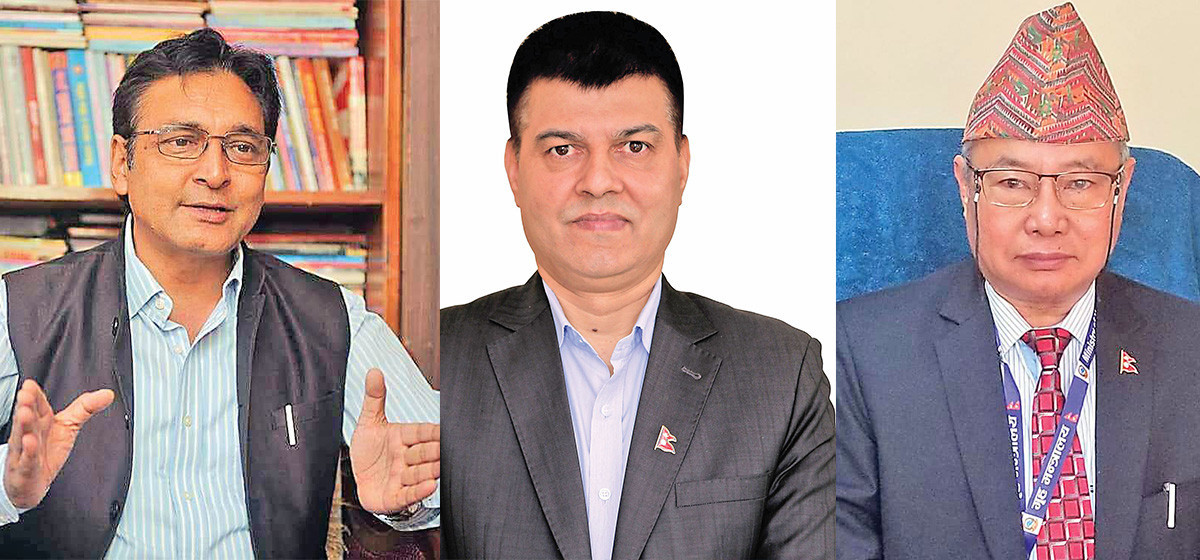
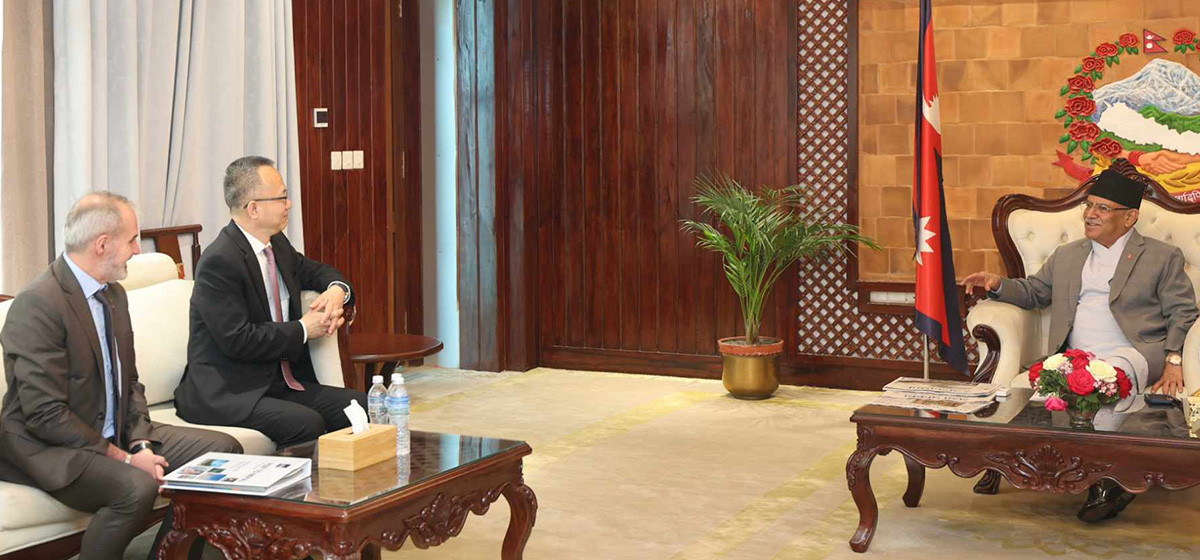
Leave A Comment